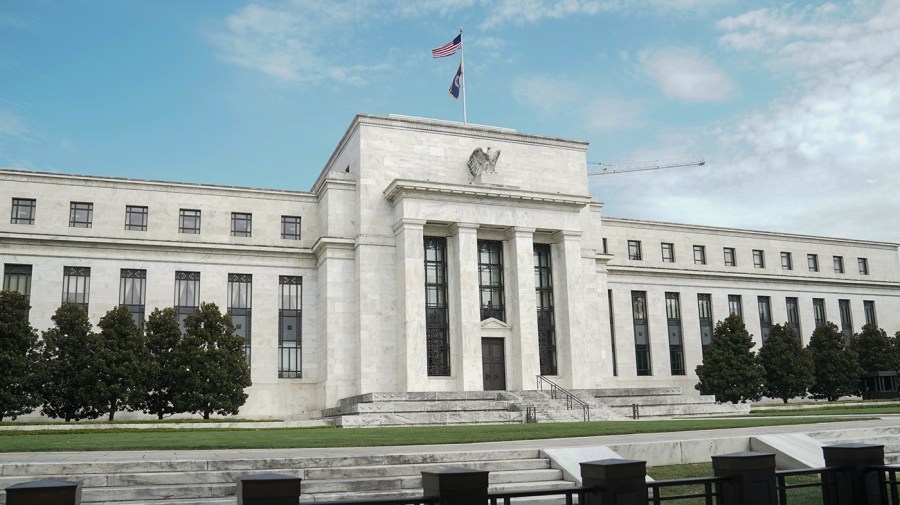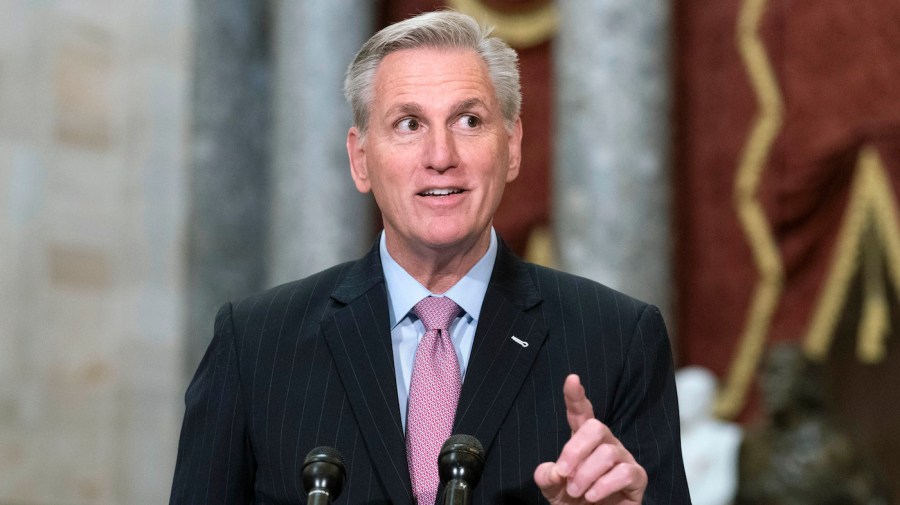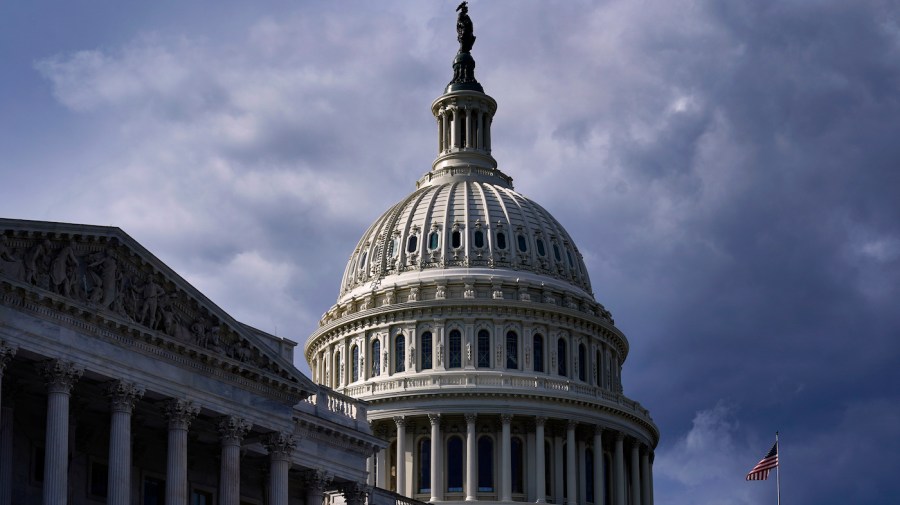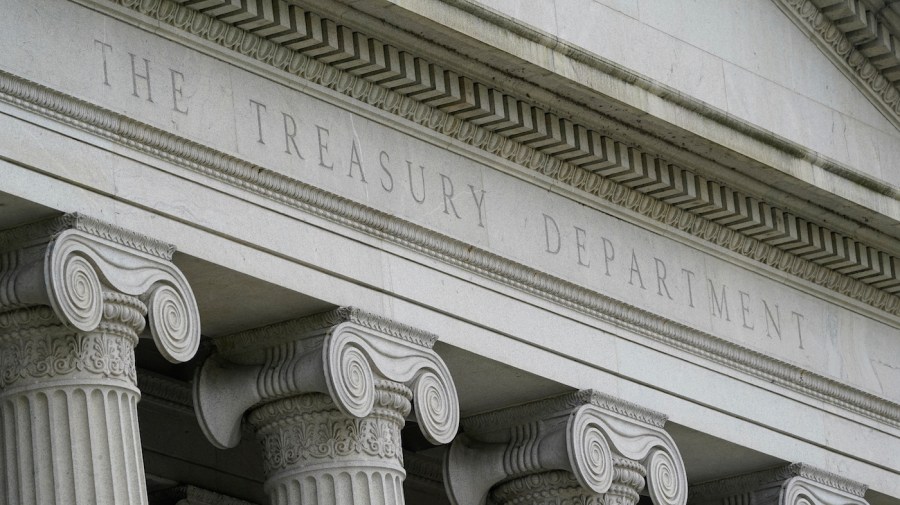Five ways a debt limit crisis could derail the US economy
The biggest threat the U.S. economy faces this year could be the fight over the federal debt limit.
Congress and the White House have roughly six months to avoid an unprecedented and potentially catastrophic default on the federal debt. But there is no clear path to keeping the U.S. solvent, with House Republicans fiercely opposed to any debt ceiling increase unaccompanied by serious spending cuts.
If lawmakers fail to strike a deal to avoid default, experts say the shock could plunge the world into recession and a financial crisis. Even a prolonged showdown over the debt ceiling could rattle markets and derail a global economy already weakened by inflation, rising interest rates and the lingering scars of the COVID-19 pandemic.
“There are a number of economic challenges that exist aside from the fact that debt limit negotiations are needed,” said Rachel Snyderman, senior associate director at the Bipartisan Policy Center (BPC), in a Tuesday interview. The BPC is a bipartisan think tank that closely tracks the debt limit and how long the Treasury Department can avoid a default through extraordinary measures.
“The clock is really ticking for lawmakers to get serious about finding a solution together to not only address the debt limit, but I think have a broader discussion about our nation’s fiscal challenges,” she said.
Rising recession risks

The Federal Reserve in Washington, D.C., is seen on Monday, September 16, 2019. (Greg Nash)
A showdown over the debt limit is always risky, but the chances of serious damage are even higher, as American businesses and households brace for a potential recession.
Many economists are already expecting the U.S. economy to slow into a recession after two years of high inflation and the Federal Reserve’s blitz of interest rate hikes. Other economists are more optimistic and expect the U.S. economy to simply stagnate for a few quarters, but few experts expect another year of strong and steady growth.
Snyderman said an economic slowdown could shorten the window for raising the debt ceiling by depriving the federal government of sorely needed tax revenue. Congress could also find itself struggling to find the money to stave off a steeper recession if its hands are tied by debt ceiling negotiations or an inability to borrow money to fund stimulus.
“If the government were to need to respond to an economic downturn, its toolkit is going to be more limited,” she said.
Global financial crisis

Both the U.S. dollar and Treasury bonds are considered to be among the safest assets in the world. (The Associated Press)
If the U.S. fails to stay solvent and default on its debt for the first time, the implications for financial markets could be dire.
The U.S. dollar cemented itself as the world’s reserve currency thanks to global faith in the ability of the federal government to always pay its debts.
Banks, financial firms, business and sovereign nations use trillions of U.S. dollars and Treasury bonds to back up their assets and conduct international transactions, making the U.S. indispensable in the global financial system.
Both the U.S. dollar and Treasury bonds are considered to be among the safest assets in the world. But a default on the national debt would show the world that the U.S. dollar and Treasury bonds can not be trusted, triggering a crisis of confidence that could tank the global financial system.
“Failing to [raise the debt limit] would literally be Congress choosing not to pay the government’s bills,” Snyderman said.
“We have access to capital markets. We have the ability to issue more debt. This is not like developing countries in the past that haven’t had that type of access, and have no other alternatives other than to default,” she continued. “A U.S. default would purely be a political decision.”
Americans could lose crucial federal benefits

Speaker of the House Kevin McCarthy (R-Calif.) speaks during a news conference in Statuary Hall at the Capitol in Washington, Thursday, Jan. 12, 2023. (AP Photo/Jose Luis Magana)
A default on the national debt would block the federal government from spending hundreds of billions of dollars on programs millions of Americans depend on for food, medical care and basic necessities.
House Republicans are expected to propose a bill that would direct all federal revenue toward making payments to debt holders and away from social safety net programs if the U.S. runs out ways to avert a default.
Experts say entitlement programs like Social Security and Medicare — for which the Treasury manages spending — could also be at risk if the government defaults on its debt.
“If we hit the debt ceiling, and the Treasury runs out of extraordinary measures, and they really can’t meet their obligations, somebody’s not going to get paid,” David Wessel, director of the Hutchins Center on Fiscal and Monetary Policy at the Brookings Institution, told The Hill in a recent interview.
“It might be someone who owns a Treasury bond. It might be a Social Security recipient,” Wessel said.
Data from the Treasury showed Social Security leading a list of the top 10 categories and agencies for government spending in fiscal 2022, with a price tag of more than $1.2 trillion. Medicare clocked in as fifth on the list, amounting to more than $750 billion for the 12-month period ending in late September.
Both programs are on track to insolvency in the coming years, with Medicare roughly six years from being insolvent and about twice that time remaining for Social Security, according to the Committee for a Responsible Federal Budget.
Some Republicans have expressed interest in recent months in seeking potential reforms to such programs as part of debt limit talks with Democrats. However, other Republicans have pushed back on proposals to leverage the negotiations for concessions on entitlement programs since the party took back the House this month.
Higher interest rates

The Capitol is seen in Washington, Monday, Oct. 4, 2021. (AP Photo/J. Scott Applewhite)
The nation could also see higher interest rates for its debt as a potential consequence, experts warn.
“U.S. Treasury debt is considered about the most risk-free borrowing instrument in the world because the U.S. has had a long, long history of making good on, not only paying interest, but then repaying the principle of debt when it comes due,” Paul Van de Water, senior fellow at the Center on Budget and Policy Priorities, told The Hill.
“So, anything that would make the U.S. government look like a less trusty borrower would increase the interest rate that lenders would demand to lend money to the U.S. Treasury,” he added.
Van de Water, a former analyst for the Congressional Budget Office, also said such an impact could extend to costs that hit harder at home for Americans, warning of potentially higher interest rates domestically since many borrowing rates can be tied to Treasury rates.
“Individual rates on home mortgages and credit card debt would go up, rates in other countries’ borrowing might go up,” he said. “And of course, when you have an increase in interest rates, that slows the economy, in that the expectation of a slower economy can have negative effects on the stock market as well.”
Falling public trust

The Treasury Building is viewed in Washington, May 4, 2021. (AP Photo/Patrick Semansky, File)
Polls show a vast majority of Americans already disapprove of how Congress is handling its job, and experts doubt that dissatisfaction will improve if lawmakers manage to pull off what would be an unprecedented default this year if they fail to act the debt limit.
According to the Peter G. Peterson Foundation, the debt limit has been raised nearly 90 times under both Republican and Democratic administrations in the past 63 years.
However, the task has become increasingly partisan over the years, with both sides engaging in high-stakes clashes down to the final stretch before eventually avoiding a default.
Republicans are for significant spending cuts as part of concessions they hope to gain from Democrats in debt limit negotiations. By contrast, Democrats have insisted on a clean bill to address the debt limit, while pushing back on proposals by Republicans to draw down certain spending.
Copyright 2023 Nexstar Media Inc. All rights reserved. This material may not be published, broadcast, rewritten, or redistributed. Regular the hill posts










